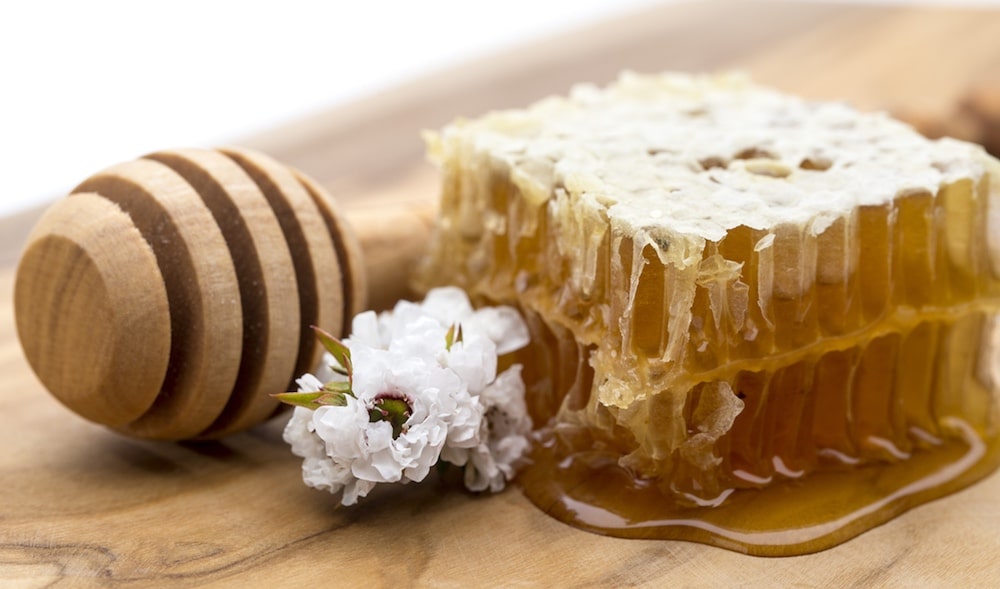
The beauty ABC: Manuka honey
The New Zealand teatree (lat. Leptospermum scoparium), also known as manuka, gives its name to the liquid gold.
The Maoris, the native people of New Zealand, use the bush which grows up to 4m tall as a natural remedy for all sorts of ailments. The bark, blossoms and the boiled juice of the plant are used internally and externally for infections, wounds and to strengthen the immune system.
The amber-coloured honey is made from the blossom nectar. The manuka requires amazingly few nutrients to flourish and grows on river banks and at the edge of forests. The honey is a nutrient rich treasure and has diverse uses for the body, health and beauty.
The beneficial effects of manuka honey are very varied because it combats bacteria, viruses and fungi. Although sweet, if used properly it is effective against tooth decay and can prevent plaque. Specially purified manuka honey can have an antiseptic, antioxidative and healing effect on wounds. The Maori spread honey thinly on open wounds to provide quick relief and prevent infections.
We’ve brought these approaches into the modern day and applied the complex natural remedy to beauty. Cracked skin is unpleasant and can be sore. If the skin flora is damaged, manuka honey can be used several times a day instead of a cream or balm. You’ll quickly see the positive effects and your skin will become soft and smooth again. Cracked and dry lips can also be treated with manuka. A nice side effect is that this lip balm tastes great. Manuka honey can also be used on herpes sores.
Scientific studies have shown that in small amounts manuka honey can reduce bacterial strains which are responsible for the most common stomach and intestinal problems. Only the original manuka honey has this effect, there are no comparable honey varieties with such power.
Hair also benefits from the active ingredients in manuka. A hair treatment of a tablespoon of manuka honey and an egg yolk has an anti-ageing effect and makes hair wonderfully shiny.
The classic cold and its associated problems such as sore throat and respiratory infections can be alleviated with a spoonful of manuka honey in warm tea. It mustn’t be too hot, otherwise the honey loses its valuable ingredients. It can be drunk several times a day and it’s best to use a high quality herbal tea.
Fungal diseases such as athlete’s food or the common candida albicans be treated with manuka, which has antimycotic properties. Manuka honey should be spread on the area of the foot affected so that the natural remedy can take effect. It is best to apply it at bedtime and put on warm socks.
In winter and autumn it is important to have a good and robust immune system so that you have resistance for daily life.
Manuka is an all-rounder for beauty and health and should therefore be in every home.
